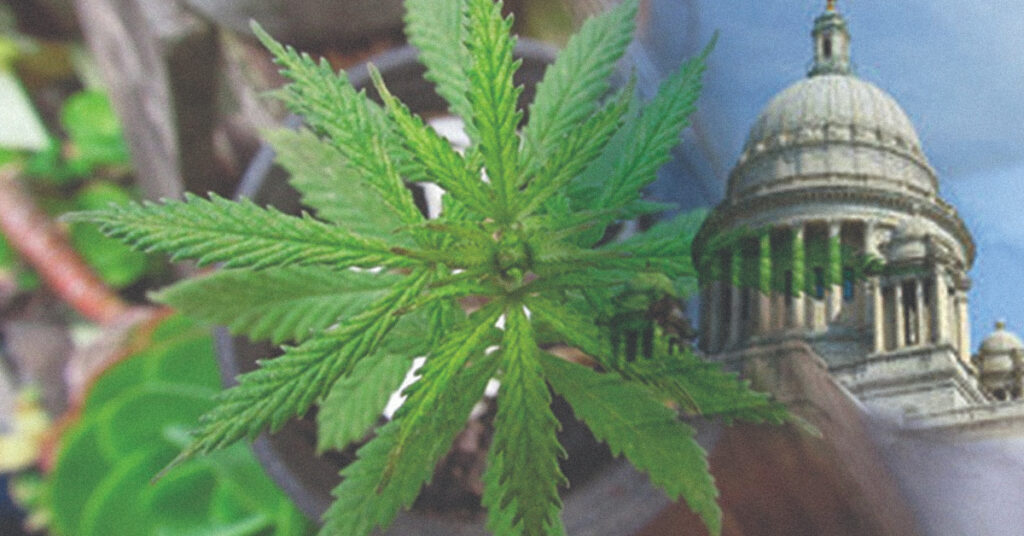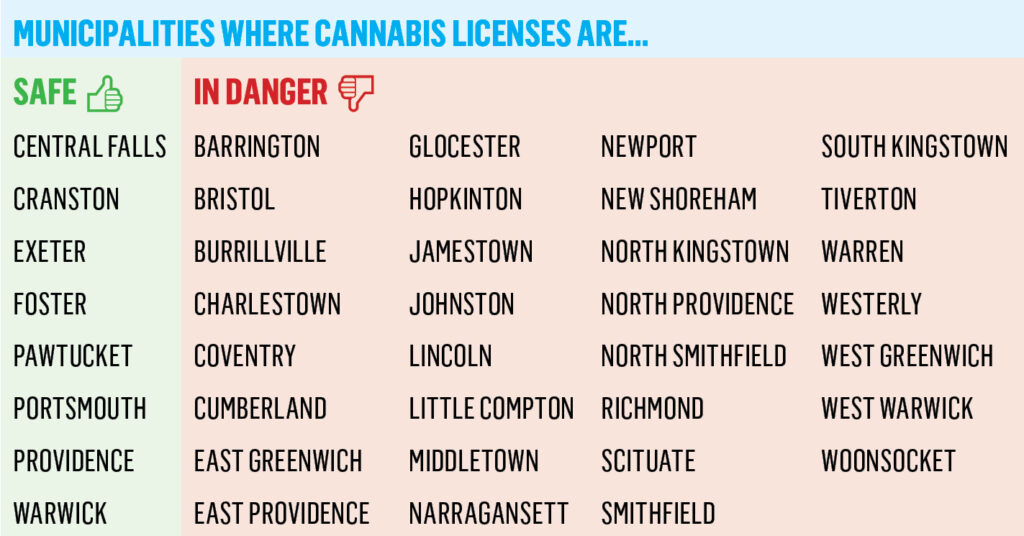
Prohibiting licensing of cannabis-related businesses directly defies the underlying principle of the new Cannabis Act that legalized adult recreational use, which is to regulate it like alcohol. Allowing local bans of cannabis-related business was a necessary political compromise to get the legislation passed after well over a decade of stalling and obstruction.
As Sen. Joshua Miller (D-28), the prime sponsor of the Cannabis Act in the RI State Senate, told Motif in 2020*, “The idea with us not putting limits on it is that we do have free enterprise, and the market will at some point limit it. Let the market limit it rather than the state regulating the limits. As an example, I think there are 1,500 liquor stores in the state by the amount of licenses available. At any given moment, there’s probably a few hundred of those dormant and the market expands into those or shrinks based on the retail marketplace, and alcohol is an example of something that was considered at one point something that should be prohibited and is now virtually regulated not by the state but by free enterprise.” As with the failed national experiment of alcohol prohibition in the 1920s, bans are likely to provide incentives and encouragement for a black market, foregoing benefits of quality control and tax revenue.
“Municipalities not already hosting medical compassion centers may by referendum opt out of allowing sales. Municipalities currently hosting licensed cultivators or testing laboratories may opt out for the future, but existing facilities will be grandfathered in. A procedure is provided that allows communities to revisit their decision to opt out in later years, should they choose to do so. Municipalities may by local ordinance ban use of cannabis in public places.”**
Because the new act only allows municipalities to opt out if they have not already licensed cannabis-related businesses in the past, larger and urban communities will not see a referendum question like this: “Shall new cannabis-related licenses for businesses involved in the cultivation, manufacture, laboratory testing and for the retail sale of adult recreational-use cannabis be issued…?” Such a question is on the local ballot in 31 of the 39 municipalities in RI:
Barrington, Bristol, Burrillville, Charlestown, Coventry, Cumberland, East Greenwich, East Providence, Glocester, Hopkinton, Jamestown, Johnston, Lincoln, Little Compton, Middletown, Narragansett, Newport, New Shoreham, North Kingstown, North Providence, North Smithfield, Richmond, Scituate, Smithfield, South Kingstown, Tiverton, Warren, Westerly, West Greenwich, West Warwick, and Woonsocket.
(The eight cities and towns not voting on bans are Central Falls, Cranston, Exeter, Foster, Pawtucket, Portsmouth, Providence, and Warwick.)

While local bans are being considered primarily in less-populated areas, these would cover a large amount of real estate, possibly making it difficult for their residents to lawfully access retail cannabis products without traveling halfway across the state. Of course voters may shoot down a lot of these bans: It is difficult to imagine that such cities as Johnston, Newport, North Providence, and Woonsocket, which are certainly not rural at all, would really expect that a local ban could succeed, and it would be downright strange for South Kingstown, the home of the state flagship University of Rhode Island, to think that banning retail sales would be a step forward.
Aside from surrendering tax revenue for cannabis-related businesses, proponents of bans would be shifting whatever problems might be associated with such businesses to neighboring municipalities or even to neighboring states. It is obvious that forcing alcohol purchasers to drive for a half-hour each way to reach the nearest liquor store would have undesirable consequences. Why such NIMBYism (“not in my back yard”) is acceptable with cannabis but not alcohol is mystifying.
How the election results shake out will determine the consequences, and there are a number of different possibilities that could emerge. If only a few rural areas adopt bans, they will turn themselves into isolated islands among a sea of retail commerce that passes them by, and the practical effects will be minimal. If a large fraction of the proposed bans are adopted, especially in populous urban communities such as Newport and Woonsocket, then much of the benefits of the Cannabis Act will be lost to the existing black market that will not be brought under a regulatory and tax structure, and widespread defiance of the law will simply continue as it has for decades. If the middle ground occurs and there are many bans enacted but not too many, then the state will have a patchwork of permissive and restrictive areas scattered essentially at random, and customers will take their patronage to nearby retailers who pay taxes to neighboring jurisdictions.
Where local bans pass, as the black market and loss of revenue become apparent, there will be pressures to reconsider the bans through referenda at nearly every election in the future, until almost every such ban is repealed. In the meantime, the last vestiges of prohibition will keep struggling, zombie-like, against their inevitable demise.
UPDATE Nov 9, 2022: Of the 31 municipalities considering bans, 25 voted to allow and six voted to deny licensing of new cannabis-related businesses (“RI Election 2022 — Magaziner, McKee, cannabis sales win big: Democrats sweep all state general offices”, by Michael Bilow, Nov 8, 2022).
*(“News Analysis: Cannabis Proposal Focuses on Medical as Lead-In to Recreational“, by Michael Bilow, Apr 1, 2020)
**(“Pot in Every Pot: RI Legalizes Recreational Cannabis”, by Michael Bilow, May 25, 2022).